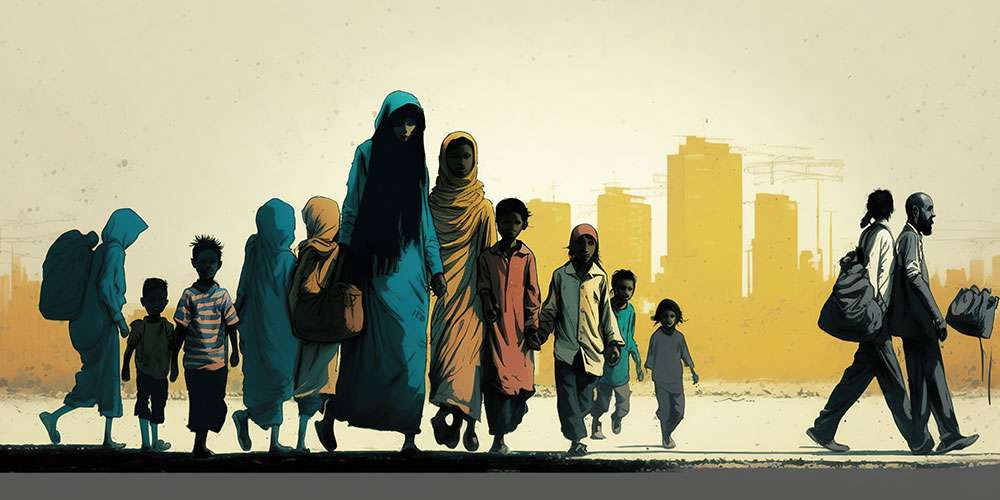Human migration is the movement of people from one place to another, whether within a country or across international borders. It is a complex phenomenon with a long history, and there are many different reasons why people choose to migrate. Those who have migrated are often called the diaspora. Migration is generally initiated by a push from within the home area or a pull to the new host area.
Here are some examples.
Pull
- Economic opportunity: People may migrate for better economic opportunities, such as higher wages, more job opportunities, or access to healthcare.
- Education: Education opportunities are often motivations for migration.
- Family reunification: People may migrate to join family members already living in another country.
Push
- Refugee or Asylee status: People may migrate as refugees fleeing war, persecution, or other forms of violence.
- Natural disasters: People may migrate after natural disasters, such as earthquakes, floods, or hurricanes.
- Political Instability: People may also migrate to escape political instability.
Migration can significantly impact the diaspora and the countries they move to. Migration can have many positive and negative effects on sending and receiving countries.
Positive effects of migration include:
- Increased economic growth: The diaspora can contribute to economic growth in both their home and host countries. In their home countries, they can send remittances back to their families, which can help to boost the local economy. In their host countries, the diaspora can fill labor shortages and contribute to the tax base.
- Cultural diversity: The diaspora can bring new cultures and perspectives to their host countries, which can enrich the cultural landscape.
- Innovation: The diaspora are often highly skilled and educated, and they can bring new ideas and innovations to their host countries.
Negative effects of migration include:
- The strain on resources: The diaspora can strain resources in their host countries, such as housing, healthcare, and education.
- Social tensions: The diaspora can face discrimination and social exclusion in their host countries.
- Security risks: The diaspora may be involved in criminal activity, such as human trafficking and drug smuggling.
The number of people migrating is expected to continue to grow in the coming years. The church should recognize the general effects on the host country and the strategic nature of engaging the diaspora with the gospel. Many diaspora come from gospel-deprived countries that are majority Muslim, Hindu, Buddhist, or Sikh. This gives the church in the host location an excellent opportunity to connect with and share the gospel with unreached people groups in their own city.




